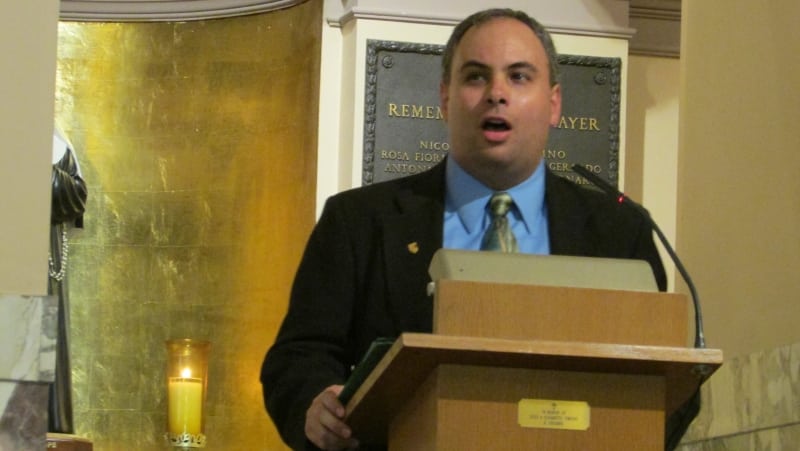I have been on the job at the USCCB as the Assistant Director of Certification for Ecclesial Ministry for about 10 weeks. It has been a whirlwind of activity and learning on the job and some significant help from my predecessor and the support of colleagues in the Secretariat on Catholic Education.
These weeks have included some great experiences, including meeting many wonderful colleagues in my Secretariat and elsewhere who have helped orient me to the protocols and experiences of the Conference. At the same time, I have been able to reach out to many national lay ministry leaders as the most significant part of my work is the guide the certification of standards for organizations who certify lay ecclesial ministers in the Catholic Church in the U.S. and have had great conversations with them, building on previous relationships and forging new ones. My office resources the Subcommittee on Certification and we had a successful meeting earlier this month in Washington.
As I was taking on the role, I was also given authorization to participate with a colleague from the USCCB Secretariat on Laity, Marriage, Family Life and Youth to attend an international gathering on ‘best practices’ for the formation of the laity in Rome, Italy! In addition to all of the work above, there has been significant preparation for this trip – my first to the Eternal City. The conference is sponsored by the newly established Dicastery on Laity, Family and Life in the Vatican. As I prepare for this trip today, I am reminded that it was a mere 3 years ago – in September 2015 – that I was present on the campus of the Catholic University of America as a Ph.D. student at the first outdoor Mass celebrated by Pope Francis during his apostolic visit. Being in this position 3 years later reminds me that, at times, God’s activity in our lives reflects a symmetry that we can stand in awe of.
I am humbled to be going there to speak to the gathered delegates from bishops conferences around the world about the specific work of developing and promoting best practices in lay ministry today, which has, in turn been the product of development – both spontaneously and, more recently, with guidance from the 2005 document Co-Workers in the Vineyard of the Lord – in the U.S. over the last 30-50 years.
All of these are great accomplishments for anyone less than 10 weeks into the job, and I am very excited for this historic opportunity to speak about lay ministry best practices as these have developed from the hard work of so many people over the decades.
Yet, as I go to this historic gathering, I also carry in my heart the anger, brokenness and deep pain that is as the heart of the crisis of abuse and abuse of power that is engulfing the U.S. and worldwide church. While time and travel don’t allow me to write yet about the full depth of the impact the experience of these new revelations has had on me – especially as a new employee of the bishops’ conference – what does stand out as most important to me in the midst of this crisis is that a well-formed and well-equipped laity is vital, not only the resolution of this crisis but to the future of the church as well. It is an historic moment of crisis which has elevated the importance of the work of formation of the laity with which I am now engaged and which this conference seeks to promote.
I look forward to what the experience will bring and ask for your prayers not only for the events of this coming week’s conference but in the continuing follow up which emerges from this event. And let us continue to pray that all of us as church – leaders, clergy, laity, religious – will be given a double portion of the Spirit to face the consequences of past systemic failures and misdeeds, seek to make restitution and move forward into a future that will prevent such abuses and enable the growth of God’s holy reign.



 Request Dr. DelMonico's professional services for a liturgical, ministerial or leadership consultation, or for an academic or public presentation.
Request Dr. DelMonico's professional services for a liturgical, ministerial or leadership consultation, or for an academic or public presentation.